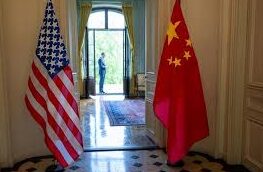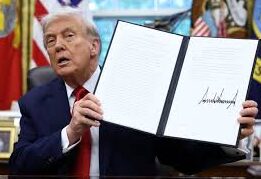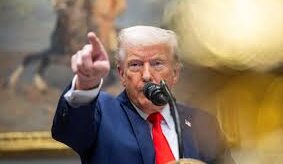Top US and Chinese officials are meeting in Madrid on Sunday to tackle long-standing trade disputes, the looming deadline for TikTok’s operations in the US, and Washington’s push for allies to pressure Beijing over Russian oil purchases.
This marks the fourth meeting in four months between US Treasury Secretary Scott Besant, US Trade Representative Jamieson Greer, and Chinese Vice Premier He Lifelong. The talks are part of efforts to keep trade relations from collapsing under tariffs imposed by President Donald Trump.
The last round of negotiations took place in July in Stockholm with China’s chief trade negotiator Li Chenggang. Both sides agreed in principle to extend a 90-day truce that eased tariffs and allowed rare earth mineral exports from China to the US to resume. Trump has since extended current tariffs on Chinese goods until November 10.
Analysts say the Madrid talks, hosted by Spanish Prime Minister Pedro Sánchez, are unlikely to deliver major breakthroughs. The most probable outcome is another extension of the September 17 deadline for TikTok’s parent company, ByteDance, to either divest its US operations or face a shutdown.
A source familiar with the talks said no deal is expected, but the deadline will likely be extended for a fourth time since Trump took office in January. Trump himself launched a TikTok account last month.
Unlike previous talks in Geneva, London, and Stockholm, TikTok is officially on the Madrid agenda, giving the administration political cover to issue another extension. This could frustrate both Republicans and Democrats in Congress who want TikTok sold to a US company over national security concerns.
Wendy Cutler, a former US trade negotiator, said the White House may be holding back bigger “deliverables” for a potential meeting between Trump and Chinese President Xi Jinping later this year, possibly at the APEC summit in Seoul. Those could include a final TikTok deal, lifting Chinese restrictions on US soybeans, and reducing fentanyl-related tariffs on Chinese goods.
But Cutler warned that core US concerns about China’s economic model will take years to resolve, including demands for Beijing to reduce subsidies and rely more on domestic consumption. “Frankly, I don’t see China rushing into a deal without major concessions on export controls or tariffs, and the US can’t offer that without progress from Beijing,” she said.
Russian Oil Pressure
The Treasury Department said the Madrid talks will also cover joint efforts to stop money laundering and China’s role in supplying technology that supports Russia’s war in Ukraine.
On Friday, Besant urged G7 allies to impose “meaningful tariffs” on Chinese and Indian imports to push them to stop buying Russian oil, a move aimed at cutting Moscow’s revenue and forcing it to negotiate peace. G7 finance ministers said they discussed such measures and agreed to accelerate talks on using frozen Russian assets to support Ukraine.
The US has already slapped a 25 percent tariff on Indian products linked to Russian oil purchases but has avoided similar penalties on Chinese goods. China’s Commerce Ministry confirmed the Madrid talks will address tariffs, export controls, and TikTok.
Spain’s Role
Spain is seizing the chance to spotlight its role as a host for high-stakes diplomacy. Foreign Minister José Manuel Albares will publicly welcome both delegations at Madrid’s baroque Palacio de Santa Cruz.
A Spanish government source said hosting these “sensitive” talks shows Madrid is becoming a trusted venue for strategic negotiations. Spain has also pushed for an international peace conference on the Israel-Palestine conflict.
For Sánchez, the talks are also a chance to strengthen ties with Washington after recent friction over Gaza and Spain’s refusal to meet NATO’s 5 percent defense spending target. Besant himself criticized Sánchez in April for calling China a “strategic partner” during the height of Trump’s tariff fight, saying closer ties with Beijing were like “cutting your own throat.”






